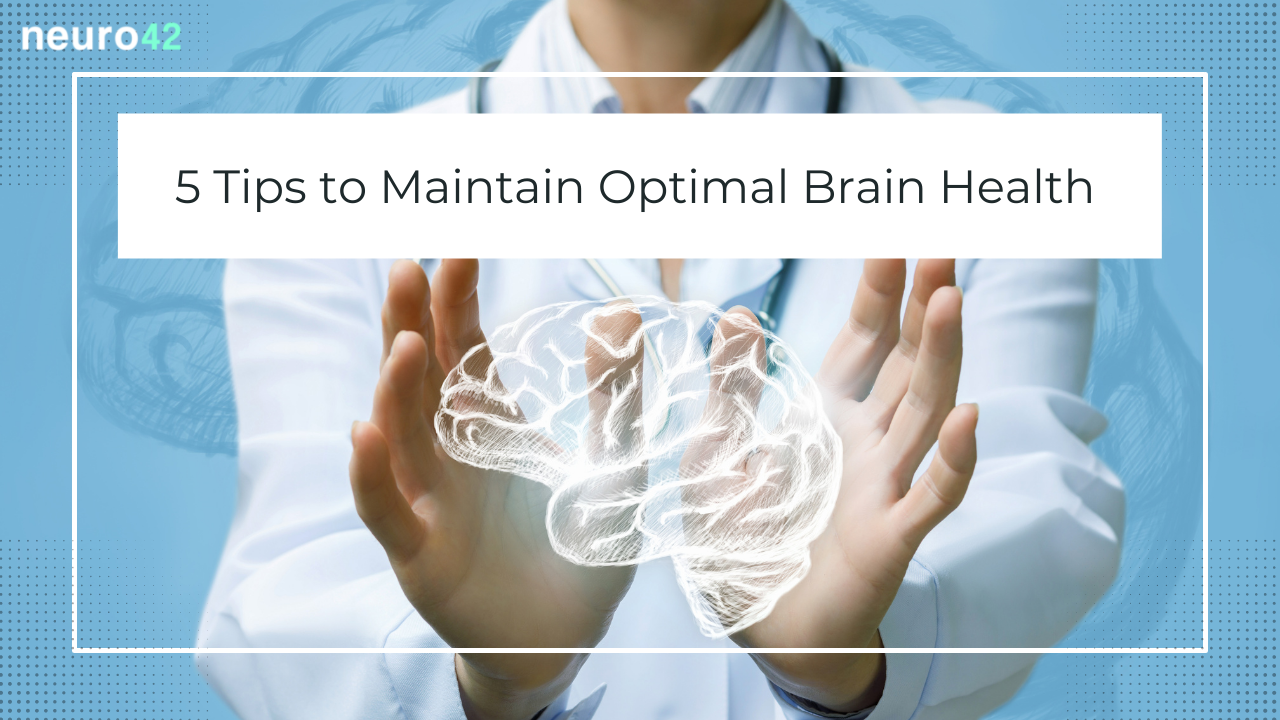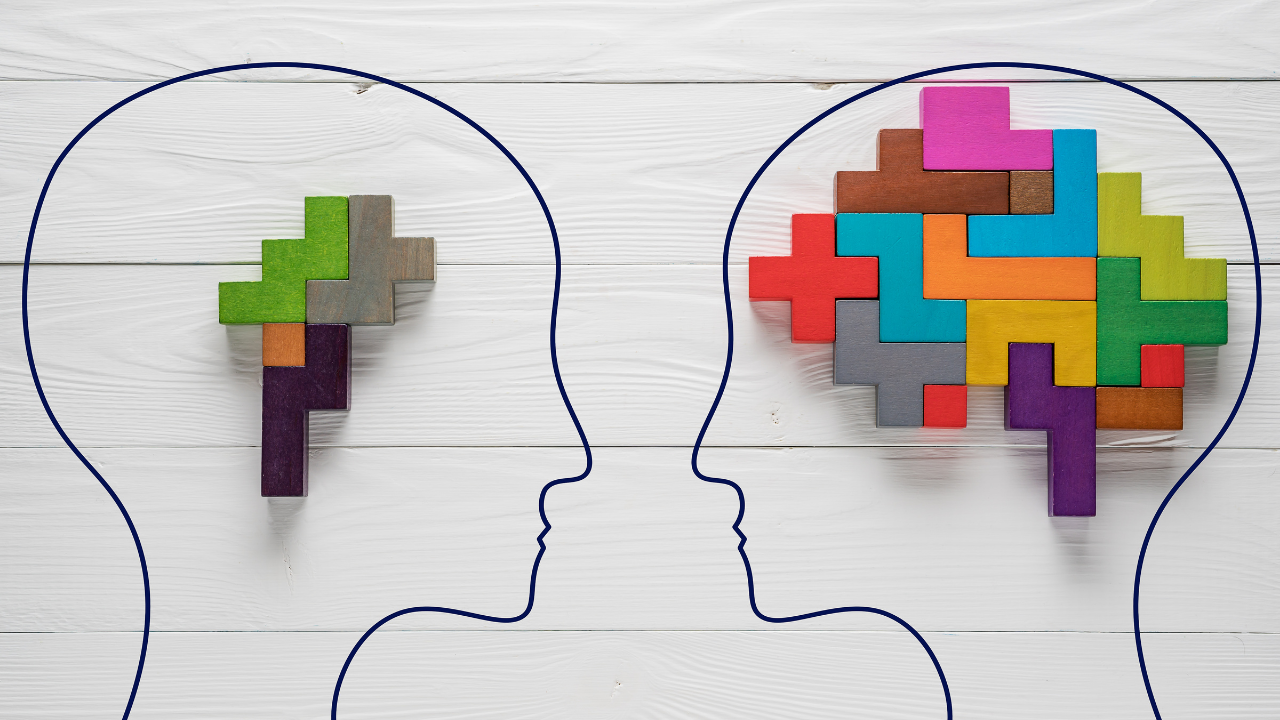5 Tips to Maintain Optimal Brain Health

Exercise more. Eat better. Quit smoking. Save money. Learn a new skill.
According to published research, these five goals were among the most popular New Year’s resolutions for 2021. As good and fruitful as those all sound, there’s one resolution that we feel doesn’t get the attention it should: Better brain health. With age comes changes to the brain, and it’s not uncommon for those deviations to include mental decline. That said, there are some things you can proactively do to help the cause and potentially slow the cognitive consequences of aging. Here are five easy tips for maintaining optimal brain health.
1. Keep your brain stimulated
By all accounts, one of the most beneficial things you can do to maintain optimal brain health is to keep your brain stimulated. Think of your brain like a muscle that needs exercise to thrive—just like our biceps. But instead of doing dumbbell curls, you can keep your brain in shape by reading, playing cards, completing a crossword puzzle, or challenging yourself to a game of memory or Sudoku. These brain games, and other activities requiring mental effort like drawing and painting, keep your mind sharp.

2. Manage your stress level
As Harvard Health Publishing writes, stress affects how the brain functions. Studies have shown that people who have experienced either real-life stress or manufactured stress in a research setting encounter interference with cognition and memory, increasing the risk of Alzheimer’s disease and dementia. One helpful thing to note is that many of the most effective tips for stress reduction and management can also have an impact on your holistic health. For instance, experts often suggest exercise, adequate sleep, deep breathing and maintaining a positive attitude as ways to keep stress at bay.
3. Maintain regular sleep patterns
Getting good rest has plenty of perks, including the possibility of keeping your brain in its best condition. In an article on understanding sleep, the National Institute of Neurological Disorders and Stroke writes that getting quality sleep is “as essential to survival as food and water.” That same article references that sleep is an important facet of how nerve cells communicate with each other and that it can impact our mood. Most adults need between seven and nine hours of sleep to achieve proper rest, so make sure you’re getting plenty of ZZZs each night.

4. Stay social
We’re not implying you have to become a social butterfly to keep your brain sharp, but there is some merit to remaining socially involved. Studies show that isolation or a lack of social interaction is linked to an increased risk for dementia. Also, brain shrinkage typically associated with Alzheimer’s disease was witnessed in studies involving lab animals experiencing isolation. Having access to friends or family to share your ideas and feelings with can be a powerful preventive tool when it comes to brain health. If family isn’t an option, try connecting with people who have the same interests and use those passions as the building block of a budding friendship.
5. Be heart healthy
Much has been written about the mind-gut connection, but don’t discount the relationship between the brain and heart. Healthy brains rely on cardiovascular systems that are in tip-top shape. Quitting smoking, avoiding a diet loaded with saturated fats and sugars, and keeping your blood pressure and cholesterol in check are good ways to ensure your heart stays ticking the way it should.

As a company focused on the development and commercialization of portable head and brain MRI for diagnosis and interventions of neurological conditions, maintaining optimal brain health is something neuro42 takes very seriously. If you’re like us and interested in learning more about brain health, we encourage you to check out the online resources developed by the Alzheimer’s Association, National Institute on Aging and World Health Organization.
